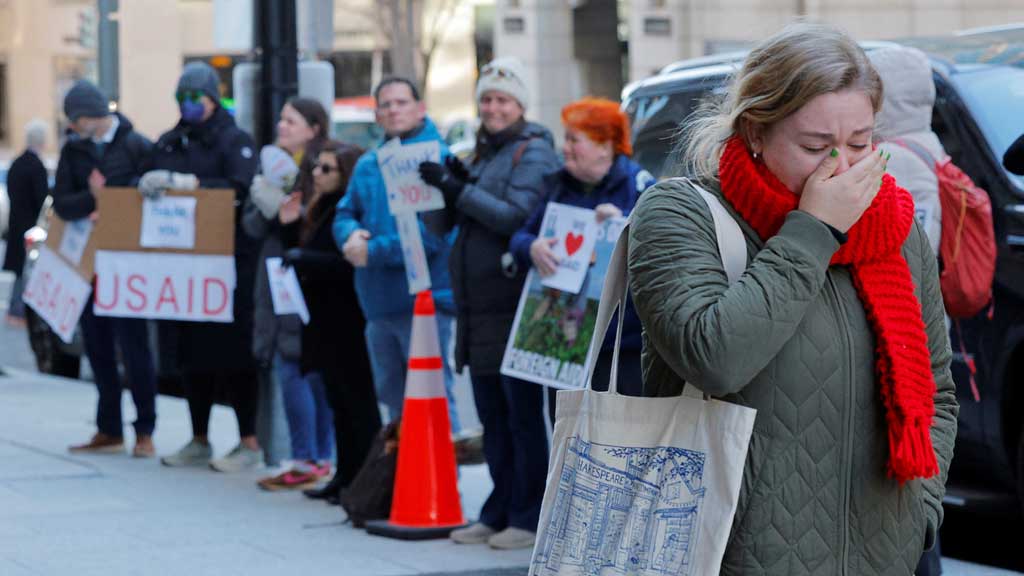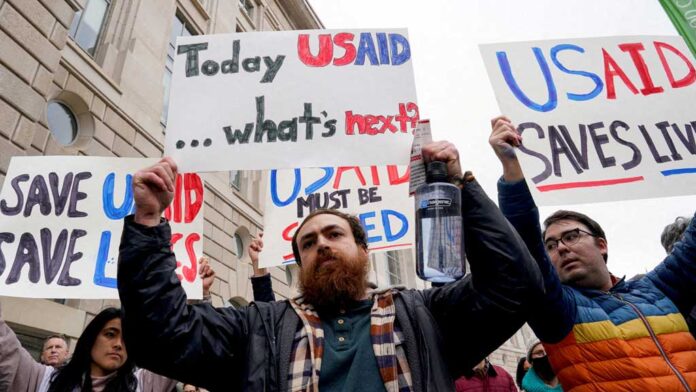The Trump administration announced on Sunday that it will place nearly all USAID employees—excluding leadership and essential personnel—on paid administrative leave while cutting 1,600 positions within the United States.
The move comes as part of an initiative led by billionaire Elon Musk’s Department of Government Efficiency, which has focused on significantly reducing the US Agency for International Development (USAID), the primary channel for American foreign assistance and a key tool in US “soft power” diplomacy.
In an email reviewed by Reuters, affected employees were informed, “I regret to inform you that you are affected by a reduction in force action,” with terminations set to take effect on April 24. The decision follows President Donald Trump’s order to freeze foreign aid for 90 days shortly after taking office on January 20, halting funding for programs addressing starvation, deadly diseases, and support for displaced populations worldwide.

Despite the freeze, the administration approved $5.3 billion in exemptions, primarily for security and counter-narcotics initiatives, according to documents reviewed by Reuters. USAID programs received less than $100 million in exemptions, a sharp contrast to the approximately $40 billion it managed annually before the freeze.
According to USAID’s website, as of midnight on Sunday (US Eastern Time), all direct hires, aside from essential staff, will be placed on leave, with 1,600 US-based personnel cut. An earlier notice had estimated up to 2,000 domestic positions could be eliminated.
The White House did not immediately respond to requests for comment.
A federal judge ruled on Friday in favor of the administration, allowing thousands of USAID employees to be placed on leave, marking a setback for government employee unions challenging what they view as an attempt to dismantle the agency.
Former senior USAID officials estimate that most of the agency’s 4,600 employees, spanning both Civil Service and Foreign Service, will be placed on administrative leave.
Marcia Wong, a former senior USAID official, criticized the decision, stating, “This administration and Secretary (of State Marco) Rubio are shortsighted in cutting into the expertise and unique crisis response capacity of the US. When disease outbreaks occur or populations are displaced, these USAID experts are the first deployed to help stabilize and provide aid.”



